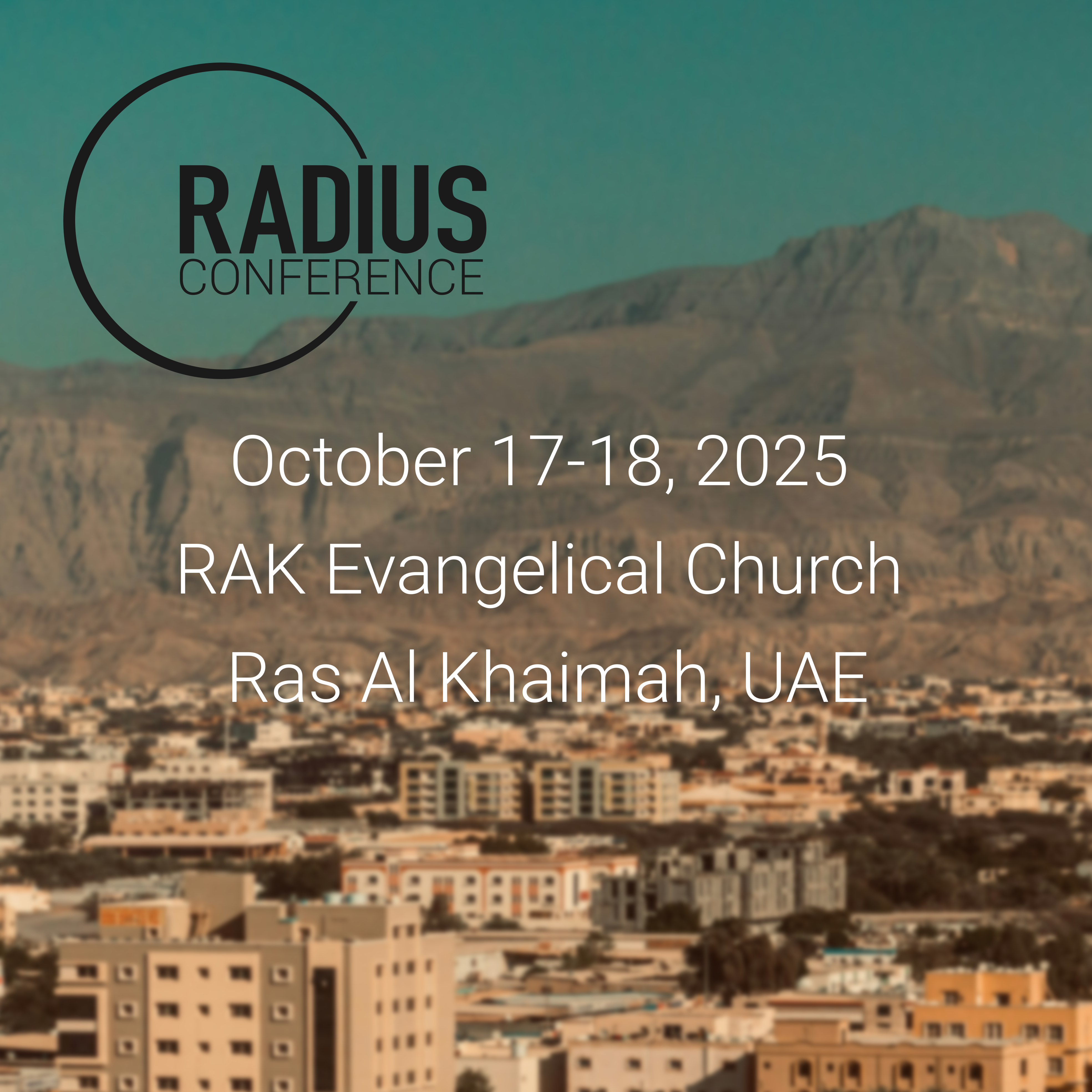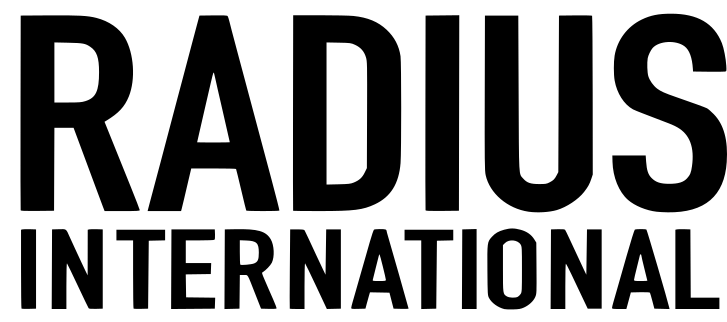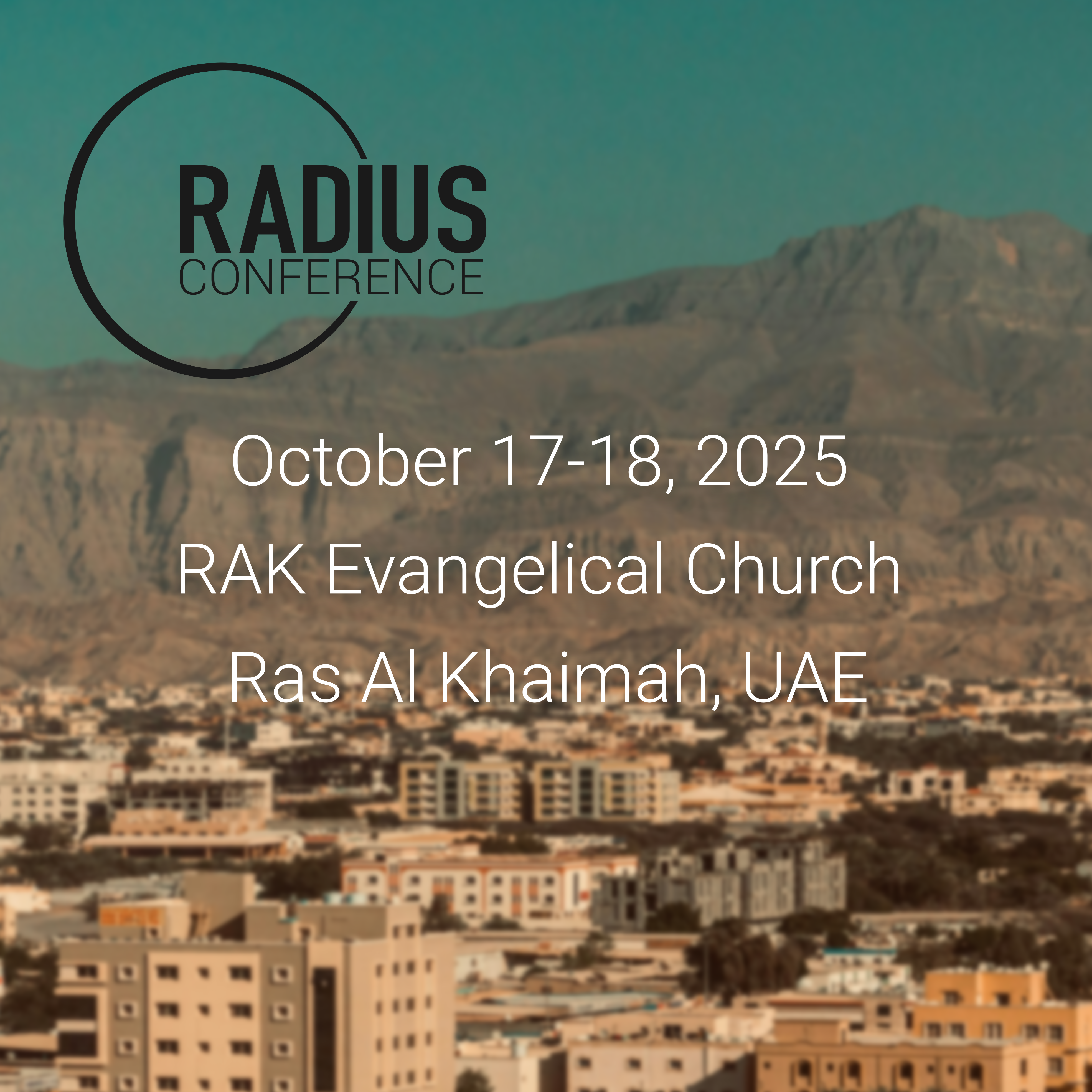About the Author
Bob is currently serving in North Africa learning his 3rd language and preparing to do church planting in a refugee context. He has his Masters degree in Public Health and has served with Frontiers International for 7 years on the continent of Africa.
“The teaching of the wise is a fountain of life. (Prov 14:14)”
Christ’s great commission commands us to make disciples by “teaching” the nations obey “all that I have commanded you.” Teaching, then, is a central part of the Christian task of bringing God’s kingdom throughout the world. DMM practitioners rightly note that “teaching” does not have to mean lecturing, or even providing answers. Sometimes, we can teach indirectly by providing questions; this allows seekers of the truth to “discover” the truth on their own. There is, then, a broad spectrum of ways to “teach” Christ’s message which can range from the extremely direct (providing answers) to the extremely indirect, through discovery (“what do you think?”).
DMM tells us that we should never teach directly; a DMM document explains that seekers and new believers should be
led to study directly from God’s word and find their own answers. So we don’t lecture or teach them. We just ask questions. Practice NOT answering questions…
By providing the right questions to groups of seekers and new believers, we are to help them to discover the truth on their own from scripture, by the help of the Holy Spirit. We provide questions, not answers. This is partly an attempt to help seekers and new believers learn to depend on the Scriptures, rather than on expat workers. DMM also hopes to help expat workers avoid polluting the message with our own ideas and cultural biases. In fact, DMM tells us that avoiding dependence is so important that expat workers should not even be present (beyond the first one or two meetings) when seekers and new believers study scripture.
Facilitating discovery, as advocated by DMM, is a technique by which we can teach the nations in obedience to Christ’s Great Commission. It is an excellent way of teaching. However, it is only one way of teaching. DMM runs into trouble when it heavily discourages cross cultural workers from using other forms of teaching as well and instructs them to consistently absent themselves from group Bible study and worship. We need direct teaching as well as discovery, and in general, young believers benefit from the presence of more mature believers (though in some countries, due to security constraints, this may be less possible). Below, I contend that by discouraging direct teaching, DMM breaks the pattern we see in the Scriptures and may in fact leave new groups of believers untaught and unstable.
Teaching in the New Testament
The heavy emphasis in DMM on facilitating discovery contrasts to the teaching model used by Jesus, his apostles, and other New Testament believers. They most often teach directly, and do not shy away from proclaiming truth.
Jesus is most often recorded as teaching directly
- Jesus taught directly throughout His ministry (e.g., the Sermon on the Mount, Matthew 4:23, 10, 11:1, 11:7–30, 12:25 ff., 13:3–52, 15:10,11, 18:1–35, 23, 25–5; Luke 5:16–22, 9:11, etc.).
- Even Jesus’s parables, while they contain truth hidden in riddles, are an example of direct teaching, not discovery; Jesus is speaking, people are listening. This does not imply that Jesus simply lectured; there may have been interaction. But He was teaching directly, rather than facilitating individual or group discovery. When Jesus’s disciples ask Him for explanations, even of His simpler parables (see, for example, Matthew 13, the parable of the sower), He simply tells them what the parables mean.
- Discovery groups are never recorded
The apostles are most often recorded as teaching directly
- The apostles taught publically in Luke 9:6, and in Acts 2, 3 and 5:42
- Paul’s pattern in any new city is to first go and teach publically in the synagogues or other public places of prayer (Acts 13:5, 13:14, 13:44, 14:1, 16:13, 17:1–3, probably 18:5). He teaches publically in Athens (Acts 17:22, ff.). He seems to have spent two years doing so daily in the school of Tyrannus (Acts 19:9). He teaches quite directly to Lydia’s family – explaining so much that after a single session with them, baptism is appropriate (Acts 16:15). In Acts 20, when he looks back over the years at Ephesus, he says he “went about preaching the kingdom” among them (v. 25) and “did not shrink from declaring to you the whole purpose of God” (v. 26) and was “teaching you publicly and from house to house” (v. 20).
- Discovery groups are never recorded
Other New Testament Christians are most often recorded as teaching directly.
– Stephen taught publically (Acts 6:10)
– Philip taught publically (Acts 8:5,6)
– Apollos taught publically (Acts 18:28)
– Paul exhorts Timothy to teach (1 Tim 6:2, 2 Tim 2:2, 4:2)
– Paul exhorts Timothy to entrust the method to others who are “able to teach” (1 Tim 3:2)
– Discovery groups are never recorded
In fact, DMM goes a step further and instructs us, as “outsiders,” to try not to even be present in Bible studies:
the outsider… no matter if they are expat or local… would coach 1–2 people from the group … and not attend the group.
It seems that DMM is asking us to use a different teaching method than is used in scripture. Jesus sometimes teaches through parables but while he teaches obliquely in these cases, he is not “facilitating discovery;” He is still the center of attention and, when He is asked for explanations of His parables, He gives them quite directly (Matthew 13, Mark 4:13–20). But for the most part He simply tells people what is and is not true Matthew 5–7, 10, 18, etc.). We simply don’t see DMM’s method (facilitating learning through discovery groups) in the biblical record and we do see a lot of direct teaching. We need to ask ourselves why. DMM’s caution against providing answers could, at worst, leave groups of new believers untaught or with only a shallow understanding of scripture; I’m glad I didn’t have to figure out the book of Romans largely on my own!
But what if the New Testament pattern is not a healthy one for the contexts we work in?
Above I’ve argued that the NT pattern is to teach directly. I think it is very hard to make any sort of strong argument to the contrary. Of course, while the NT pattern is a great place to start, not everything in the NT is normative. I’m certainly not going to bring Paul’s cloak from Troas just because he commanded Timothy to do so (2 Tim 4:13)! Perhaps the pattern we see in the NT isn’t something we are expected to replicate but simply a description of how some people did things once, long ago, in a context very different to ours. I’d like to explore whether there might be reason to disregard the NT pattern as non-normative, but would first like to provide three words of caution:
- When I attended DMM training, the trainer dismissed Jesus’s and the apostles’ actions in certain parts of the NT as non-normative. He then used their example in other passages to argue that DMM is derived straight from the New Testament; I am not able to discern the logic by which Jesus’s example and that of the apostles is normative in some cases and not in others. I am concerned that this practice (deciding the scriptures are normative when they support DMM and not normative when they do not) may reflect a tendency to read opinions into the scriptures, rather than approaching them openly to see what they say.
- It is also worth noting that DMM doesn’t simply dismiss the pattern of teaching in the NT as non-normative; instead, it tells us that we should not follow this pattern, that this pattern is no longer healthy. This is a much stronger statement.
- The New Testament itself seems to suggest that there is danger in divorcing the study of scripture apart from teaching. Peter writes that there are things in Paul’s letters “which the untaught and unstable distort, as they do also the rest of the Scriptures, to their own destruction” (2 Pet 3:16). Untaught people, according to Peter, are at risk of distorting the scripture even as they study them, to such an extent that it may result in their destruction! This passage makes it seem less than ideal to give seekers the scriptures and leave them to discover truth largely on their own. We cannot assume it is truth they will discover; perhaps many will stilll discover truth, but by not teaching we increase the risk that they may instead discover dangerous errors. This may be why we see so much direct teaching in the NT. I am not claiming that God cannot or never will work in DBS groups of untaught seekers; He has done so and will continue to. But DMM sees these situations as the ideal. Peter seems to suggest, instead, that such situations are dangerous. Perhaps in unusual circumstances (such as high security situations, in which believers are being spied on) it would make sense for seekers and new believers to separate themselves from more mature believers as they study the Bible. But this should not be our ideal.
In fairness to DMM practitioners, however, I will now consider some potential reasons why we might consider the NT patterns of teaching (almost always direct teaching) to be non-normative or unhealthy for us today. I will also explain why I feel that these reasons are unconvincing.
- Our situation is different. We come as cultural outsiders; the original apostles were not. It is true that Jesus and His 12 apostles were not outsiders when they preached to other Jews, so our situation is different than theirs and perhaps we cannot view their example as normative.However, Paul worked among Gentiles and as a Jew, he was an outsider. He still taught directly. I have often heard it argued that Paul was actually a cultural insider because he spoke Greek fluently and had grown up in a pagan dominated world. But in many cities where Paul ministered, Greek was nothing more than a trade language. While Paul spoke Greek fluently, we must remember the Roman empire was no more culturally monolithic than the Mediterranean and North Africa are today. Perhaps less – Rome expanded in a short time over a vast area that was primarily made of small states and city states, far more fragmented than the nation-states of today. Thus, the Roman Empire had a trade language but its religious system was highly varied and many of the cities Paul visited such as Perga (Acts 2:10, 13:13) and Lycaonia (Acts 14:11) had their own languages to which they resorted when they were excited as we naturally do with a “heart language” (Acts 14:11). Rome, to which Paul writes, also had its own language (Latin), as did Asia Minor (Acts 2:9) in which he travels extensively. So in many ways Paul is a cultural outsider. Nevertheless, his presence is to teach directly and he seems to have spent two years doing so daily in the school of Tyrannus (Acts 19:9). In Acts 20, when he looks back over the years at Ephesus, he says he “went about preaching the kingdom” among them (v. 25) and “did not shrink from declaring to you the whole purpose of God” (v. 26) and was “teaching you publicly and from house to house” (v. 20).It is true that there will be cultural issues we struggle to understand and that we should be slow to teach on these. However, much of this could be resolved if we were careful and were sensitive to people’s cultures and if we learned people’s languages and cultures well. And there may be times when we need to speak – always with great caution – into cultural issues even though we are outsiders; Paul gives teaching to Gentiles about how to respond to issues that surfaced from their own culture: (eating meat sacrificed to idols, etc.). The apostles in Jerusalem make a ruling about whether or not Gentiles should be circumcised (Acts 15).
- We have the NT canon; the original NT believers did not. This argument, presented extensively at the DMM training I attended, is essentially a cessationist argument (cessationists believe that the spiritual gifts, or at least some of them, are no longer active in the church today). According to this argument, now that we have the Bible teaching is no longer necessary; the gift of teaching has been done away with or at least has changed substantially. By continuing to teach directly, we might add our own interpretations or cultural traditions to the apostles’ original message, thus polluting it and making it harder for people of other cultures to accept. In a similar way, typical cessationists fear that prophecy, if it were to continue, could end up contradicting or adding to scripture. For teams that do allow prophecy (in which God’s voice is heard directly) after the completion of the canon, it seems a little illogical to exclude teaching (in which new revelation from God is never claimed – we just help people understand what He is known to have said in the past).DMM practitioners sometimes argue, in addition, that the early church would have used discovery Bible studies but couldn’t since it did not have the text of the NT. Thus, Jesus, the apostles, and those who followed them (Timothy, Philip, Stephen, Apollos, etc.) only taught directly out of necessity.Against these ideas, I would note that:
- The NT never indicates that the gift of teaching will be abolished. 1 Corinthians 12:28 describes the church as being built on “first apostles, second prophets, third teachers…” This implies that while the teachings of the apostles and prophets are primary, there is a separate group of people (teachers) who are meant to explain the teachings of the apostles and prophets which we have recorded in the scriptures. Ephesians 4 parallels this language: “He gave some as apostles, and some as prophets… and some as pastors and teachers…” (Eph 4:11). There is no biblical indication that this has ceased to be the case.
- The original apostles seemed to assume that people after them would continue to teach using the same methods they used. They never warn against this. Timothy – who is not an apostle – is exhorted to “preach the Word” (2 Tim 4:2) and even to entrust the message to others who are “able to teach” (1 Tim 3:2) and will continue to do the same. Stephen and Philip teach directly. The apostles did not seem worried their message would be corrupted by people teaching. At the end of their lives (Paul, in 2 Timothy, knows he has “finished the course” [Tim 4:7] but still commands Timothy to preach in 2 Tim 4:2) they entrust their message to teachers and never hint that this might be only a temporary and probably unstable solution.
- As discussed above, Peter says that the “untaught… distort… the scriptures, too their own destruction…” (2 Pt 3:16). This implies that even people who have the scriptures (as we do today) are in danger of distorting them to such an extent that they will finally be destroyed if there is no teaching. Peter mentions in this same section that Paul’s letters are difficult and often misinterpreted – we might infer from this that leaving groups to discover what they mean on their own could be a little idealistic, in the same way that leaving a classroom full of high schoolers to derive complex calculus theorems on their own could be a little idealistic. As I mentioned before, I am glad I didn’t have to figure out the book of Romans on my own! All of us have benefited in our lives from the direct teaching of outsiders; why would we want to take this blessing away from new believers and seekers in other cultures? If the Holy Spirit appointed teachers within the church; pretending they are not needed might be, in essence, the eye saying to the hand “I have no need of you” (1 Cor 12:21).
- We see examples in scripture when questions are asked about a text or story the seeker(s) do have access to. In Mark 4:1–21, Jesus has just told a very simple parable and the disciples ask for an explanation. This is an excellent opportunity for discovery style teaching (“What do you think it means?”) but Christ still provides an answer quite directly. Similarly, when Philip finds the eunuch reading from Isaiah 53 (see Acts 8:31–35 for the story) and is asked what it means, he answers directly.
- The New Testament was not immediately available after its last book was written, for it took some time before each of the churches recognized each book as an authentic record of the teachings of Jesus and his apostles. Although the Four Gospels, Acts, the Pauline Letters, 1 John, and 1 Peter were widely accepted at an early date, the 4th Century Christian historian Eusebius records that discussion in the early church had continued for hundreds of years about whether some New Testament books were or were not to be included in the New Testament. Many churches during this period did not operate using complete copies of all the NT texts. If there is an inherent danger that “teaching” directly may add to or distort the original apostles teaching, these years – after the death of the apostles and before the wide distribution of all their teachings in the text of the full NT – would have been a dangerous time. The apostles leave no indication in their letters that the church should hurry to compile their teachings so that it will not be dependent on teachers during this time.
- The Holy Spirit will teach, so human teachers are not needed.
All that new groups / churches need, DMM trainers tell us, is the Bible and the Holy Spirit. A document promoting DMM on a major mission organization’s website explains that “Students learn a way of studying the Bible that depends on the Holy Spirit” and that this “lessens dependence on a teacher.”But what does the Bible say about this? Or, as DMM tells us to ask: “Where is that found in scripture?” The Bible itself suggests that the Holy Spirit has given teachers to the church (Eph 4:11), and that sound teaching will “ensure salvation… of those who hear” (1 Tim 4:16). Teachers are useful because they point out dangerous heresies (1 Tim 4:6) and their teaching can be profitable for us in other ways, helping us to serve God and fulfill God’s purposes for us (Acts 20:20, 24). Proverbs suggests that the teachings of wise people are enormously beneficial:
the teaching of the wise is a fountain of life, to turn aside from the snares of death (Prov 13:14)
the mouth of the righteous flows with wisdom (Prov 14:31)
the lips of the wise spread knowledge (Prov 15:7)
While we learn much from the scriptures through the Holy Spirit‘s guidance, there is no reason to think the teaching of wise men is not still beneficial today. Why, then, do we imagine that teaching from wise expat workers would be damaging?
Often, I have heard Jesus’s words in John 6:45 quoted to validate DMM’s aversion to teaching: “And they shall all be taught of God. Everyone who has heard and learned from the Father comes to Me.” This is taken to mean that God Himself will directly teach us through His Holy Spirit so that no human teacher is needed. But in fact, interpreting this passage in this way pulls it out of context. Jesus is not claiming here that the Holy Spirit will lead new believers to insightfully interpret new passages of Scripture on their own and that the church will never need teachers. Instead, He is responding to a group of people who continue to doubt Him after He has performed a significant miracle. He is pointing out that the reason they have not come to believe in Him is because “No one can come to Me unless the Father draws Him” (v. 44) and that those who are “taught of God” (v. 45) to come to Him will certainly do so. He is claiming that the Father will teach people to “come to [Him].” He is not claiming that the Father will guide our interpretation of difficult passages of scripture. And, indeed, Spirit-filled Christians throughout history have often had significant disagreements about what important passages of scripture mean. Surely this is not because God guided them to contradictory, mutually exclusive positions?
Similarly, a document promoting DMM on a major mission organization’s website quotes John 16:13: “the Spirit of truth… will guide you into all the truth” (John 16:13) to show that trained teachers are not needed since groups can depend on the Holy Spirit to guide their opinions. But does Jesus really mean that the Holy Spirit will always direct us to correct opinions in Bible study? In context, Jesus makes this statement as He is in the process of explaining to His disciples, in a longer discourse, that He will be leaving and that He is going to give the Holy Spirit to them to empower them to continue His ministry. He has just let them know that there are some things He does not want to say to them because they “cannot bear them now” but assures them that the Holy Spirit, who guides them “into all truth” will teach them these things at the proper time. Only by reading heavily into the text can we conclude that Jesus means that the Holy Spirit will automatically give all groups of interested seekers supernatural insight to help them determine the meanings of important but tricky passages in the Bible. These truths – which the disciples “cannot bear right now” likely relate to undeveloped parts of their character, not to the interpretation of difficult New Testament books they will later write. The Holy Spirit will be faithful to grow them in these areas. I have certainly gone through years of my Christian life during which I misunderstood key passages of scripture, often to my harm. In these cases, a little teaching would have been helpful! I have also seen interested seekers come up with sincere but genuinely bizarre conclusions from Bible studies.
Jesus’s words in both John 6:45 and John 16:13 must be interpreted with balance in the wider context of scripture. Neither of these passages suggests that because the Holy Spirit guides us, we should no longer listen to teachers. Teachers are given to the church by the Holy Spirit (Eph 4:11). Additionally, these passages were spoken long before Paul exhorted Timothy through sound teaching to “ensure salvation… of those who hear” (1 Tim 4:16). Yet after speaking these passages Jesus (and His apostles and other gifted church leaders) continued to teach in the Spirit and we read of the Holy Spirit gifting people to be teachers. Thus, we should not assume that Jesus is indicating that the church will replace human teachers with the Spirit’s guidance or that the promise that the Spirit will guide us into “all truth” (John 16:13) means we need no other source of information (in fact, if we took this phrase 100% literally, we wouldn’t even need scripture because Jesus would be promising that the Spirit will guide us into all the truth the Scriptures offer!).
Let’s consider this from another angle. If all that was needed – literally – was the Bible and the Holy Spirit, we could airdrop Bibles to unreached nations and count on the Holy Spirit to work (since the Bible would be present and the Spirit is omnipresent). But DMMers know that some form of human contact is important as well. They understand that the Holy Spirit often uses evangelists to pique people’s interest. Similarly, He uses teachers to develop that interest and to help them find answers to their questions, and pastors to guide them through thorny personal issues (Eph 4:11). This is what the scriptures themselves would lead us to expect.
- Direct teaching results in dependency Returning to the book of Proverbs, what we see emphasized about the teaching of the wise is not its tendency to cause unhealthy dependency. Rather, wise teaching makes us wise, mature, and independent adults. We do not become wise primarily through “discovery,” in which we and our social network pursue truth on our own. Rather, we become wise by listening to those who are older and wiser than we.
“The teaching of the wise is a fountain of life,” (Prov 13:14).
It is not a fountain of unhealthy dependence.
“Give instruction to a wise man and he will still be wiser.” (Prov 9:9)
There is no concern in Proverbs that he will not become unhealthily dependent.
There is no reason to believe that the way the wise teaching affects us has changed since the book of Proverbs.
In fact, a certain amount of dependence is healthy. We are meant to depend on teachers just as we are meant to depend on people with other gifts. The body of Christ is interdependent; dependence on each other (provided it does not supercede our dependence on God) is not wrong. Studiously avoiding dependence on teachers (or any other part of the body) is wrong; in Biblical terms, each part of the body needs each other, and the “eye cannot say to the hand: ‘I have no need of you.’” (1 Cor 12:21) People who speak in tongues need people who serve. Evangelists need pastors and teachers. Teachers need encouragers. We all need and depend on each other.
Paul talks about being a father to the churches he plants (1 Cor 4:15). Expanding on this analogy, if we always provide answers, new believers may become too dependent (as when a father always does things for a child); if we never teach directly, new believers may be directionless (as when parents fail to communicate important lessons to their children). Perhaps, as with children, it is healthy for new believers to be provided with more direct support at the beginning and gradually weaned as they are able to understand scripture more easily on their own (and perhaps, like children, they will be quick to let us know when we interfere with their independence along the way!). I think there is scriptural reason to believe this analogy may be correct: we are told in scripture that at some stages of their lives, new believers need “milk” but may eventually be ready for “meat” (1 Co 3:2, Heb 5:12). “Milk” implies that at a certain stage, new believes may be “infantile” (Paul’s own language, 1 Cor 3:1). They are dependent, not because something is wrong with them but simply because they have not yet grown up. Until they have grown wise, they ought to learn as much as they can from those wiser than them, rather than trying to always “discover” truth on their own; a scoffer: “will not go to the wise” (Prov 15:12), but “a wise man is he who listens to counsel” (Prov 13: 15).
Suggesting that they should be completely independent from our input (or direct teaching) at the beginning is extreme – some teaching is needed, but like parents, we must realize along the way that our job is to work ourselves out of a job. This will mean that we always provide as much independence as possible. We encourage their first faltering steps and don’t simply “take over” because we can carry them more easily than they can walk. Even when we teach directly, we do so in a way that intends for the community to eventually take over teaching responsibilities. The Book of Proverbs shows that wisdom is gained primarily through instruction.
My dad “taught” me how to drive a car. He did not leave me to learn on my own, reasoning that “discovering” how to drive a car would help me remember better (indeed, it would have: I would have remembered those accidents very well). I am glad I was spoonfed some information (“This is what you do if you lose control in the rain!”) and simply shown, in some cases, what to do. I am also glad this was always done with an eye to helping me learn how to drive at points when he was not in the car – and that the explanations were followed by him allowing me longer and more difficult practice runs and eventually I didn’t need him there at all. I imagine this is more of our role in new believers’ lives: at first giving more direct guidance, milk, especially about areas where believes can easily find themselves shipwrecked, but doing this intentionally in a way that allows us to draw back at later stages of maturity.
To the extent that unhealthy types of dependency on the expat develop in groups of seekers or new believers due to direct teaching, I would suggest that this is often because either 1.) expats did not teach in such a way as to work ourselves out of a job, or, more often because 2.) expats were working with people who were willing to study the Scriptures, but studying the scriptures was not their primary interest in spending time with the expat (perhaps they enjoyed the friendship, or thought they might benefit financially, or liked practicing English with the expat). In these cases, the expat will feel the seeker has become dependent (“he never studies scripture on his own or has his own opinions”) when the real issue is one of motivation. Here DMM is quite insightful, emphasizing that we should move on quickly when we sense that people are not genuinely open and seek those who do display real openness.
But spiritually open people can benefit from our teaching. By consistently absenting ourselves from groups of seekers or new believers, as DMM suggests, we may deprive them of an important source of knowledge about the Scriptures. We may be withholding knowledge, when we should be giving it and “it is not good for a person to be without knowledge” (Prov 19:2).
- Discovery-style groups are easier to replicate Part of the allure of discovery Bible studies, we are told, is that their “DNA” allows them to reproduce rapidly. If untrained – and often unbelieving – people are able to facilitate Bible studies, it will be easier to form new groups and churches. In “traditional” missions, DMM practitioners argue, a highly trained expat worker might be able to plant a church, but the leaders of that church – who may not have his gifting and certainly would not have his level of education – will not be able to replicate what he had done and the movement will die. The “DNA” of the church he plants will not allow it to grow.But if we really agree with these ideas, we will withhold from seekers and new believers any beneficial training or information that we feel they are incapable of passing on. May I suggest that it might not be our place to make such decisions for the seekers and believers God entrusts to our care? MBBs may sometimes be far more capable than we imagine them to be. Perhaps they cannot read the theological volumes that are available to us (since many of those are written in English), but there will be leaders and teachers among them who are smart enough and adept enough to successfully pass on teaching that impacts them.Nor should we imagine that the “DNA” of the groups/churches we leave behind is set in stone. If we claim to be making disciples who are not dependent on us in unhealthy ways, we should have confidence in their ability, once they reach maturity, to change the DNA of the growing church / movement as necessary. Replicability of every aspect of ministry was not a driving concern in the ministry of Jesus or his apostles – no one was going to be able to replicate the giftedness and miraculous power with which they worked. Nevertheless, they had confidence that the movements they started would be able to survive and reproduce.
Rapid multiplication is not the ultimate goal. If we start movements in ways that allow them to grow rapidly but that deprive them of the deeper teaching that could give them stability to last in difficult times, we will do them a disservice. In the past century, rapid multiplication often occurred side by side with the growth of cults and heresies (as in China). This does not mean that we try to slow down the multiplication of churches, but it does mean that we should be wary of pushing to accelerate their growth to such a point that they can no longer grow in a stable fashion. This is why Jesus often withdraws from crowds (where there is such potential for movements) to spend time teaching His disciples. Sometimes “slowing down” the growth of a ministry can increase the potential for a movement that lasts.
The fact that DMM and similar methodologies both set “movements” as their goal and have such exact criteria for what a movement is and is not (at least 1,000 believers, at least 4 generations in the past two years) is an indicator to me that we may have moved too far in the opposite direction. - Discovery-style learning is a better way of learning In my DMM training, we were told that people only remember 5% of what they learn through lecture-style teaching. I have heard this statistic many times. This is an argument from educational theory to show that discovery, rather direct teaching, is the best method. Now, before responding, it is important to note that direct teaching (providing answers) does not have to be lecturing, but I would respond that:
- Doing away with direct teaching not only bypasses the scriptural model, it actually goes against educational theory as well. I have never seen a source for the much quoted 5% statistic, but David A. Sousa does report something similar in his textbook “How the Brain Learns,” noting that “lecture often results in the lowest student retention compared to other instructional methods. For example, Moore (2005) reports studies showing that retention after three days is 10% from lecturing and 20% from demonstration.” [0]However, Sousa then notes that this low retention rate (10%) is observed only when teachers lecture and there is no student participation and no rehearsal of material before or after. Direct teaching (providing information) does not have to exclude student participation. I imagine very few cross-cultural workers simply lecture to groups of seekers / new believers. Further, “demonstration,” which he notes provides higher retention is not the same as discovery (studying a text the way participants of discovery Bible studies do).Importantly, Sousa goes on to note that modified versions of the “lecture” in which the teacher provides answers (as DMM instructs us not to do) but does so while allowing student participation have “been shown to be effective.” Student engagement is key; Sousa in his book notes that the use of humor, visual aids, demonstrations, practice, and rehearsal can all increase retention of material. He concludes (bold facing the first sentence) “No one teaching method is best… Sometimes lecture is the appropriate method when a lot of information needs to be given in a short period of time. But neither lecture nor any other method, for that matter, should be used almost all the time. Successful teachers use a variety of methods, keeping in mind that students are more likely to retain and achieve whenever they are actively engaged in learning.” We know this to be true from experience –when God speaks to us through a sermon, for example, we remember every detail because we recognize the life-changing nature of what is being spoken and are fully engaged.
No one method is best. This contradicts DMM’s approach (never teach directly). If we want to follow best practices in education, we will use as many methods as possible to engage our learners, including not only discovery, but humor, visual aids, demonstrations, lecturing, discussion, etc. When learners are fully engaged and interested in the material they will not forget what is taught no matter what the method – each of us can remember with surprising detail the content of certain sermons or books that changed our lives.
- It is important to remember that what we are teaching here (scriptural knowledge) is personal, not academic. If we were teaching an academic subject like organic chemistry, the primary concern would be What percent of knowledge will students remember (presumably to help them pass a test)? However, when we teach about subjects of personal knowledge, our main concern is: How can I help this person learn to successfully navigate life without damaging herself or others in the process. That is why when people begin learning about things that affect them personally (e.g. how to relate to alcohol and drugs, how to relate to the opposite sex, how to drive) we never expect them to learn entirely by discovery. We don’t want them to learn the dangers of these things through discovery. Doing so would put them and others in great personal danger (even if an overdose, an unwanted pregnancy, or a car accident might teach them in such a way that they would “never forget” the lesson!). Instead, we – very directly – spoonfeed information to them to help them avoid some potentially crippling mistakes they could make by exploring on their own. The same is true of spiritual knowledge. Spiritual realities are personal, not academic; so misunderstanding them places us in danger. Very direct guidance is needed at times to help new believers avoid great pain.
- In most disciplines, it is only after being “taught” the basics that we can begin to learn by “discovery”: by analogy, you have to memorize your multiplication tables before you can begin performing complex geometric proofs and discovering axioms on your own. Doctors have to memorize basic human anatomy and physiology before they can start experimenting to discover the effects that different medicines will have on patients.
- Despite DMM trainers’ assertions to the contrary, educational theory does not seem to support DMM’s idea that we should not teach directly. But even if it did, we should very cautious about drawing our methods from educational theory rather than from scripture. DMM practitioners are taught to ask (“Where do you see that in scripture?”). In scripture, Jesus often taught directly and, as a brilliant teacher, He probably understood the implications of the educational methods He was choosing. This would be true even if His teaching style defied some modern educational theory. The way in which Jesus grew His movement was often counter intuitive and defied commonsense sociological analysis. For example, he sometimes avoids crowds (Matthew 5:1, 8:18), and He sometimes teaches in riddles (Matthew 13) which the people clearly do not understand.
- Doing away with direct teaching not only bypasses the scriptural model, it actually goes against educational theory as well. I have never seen a source for the much quoted 5% statistic, but David A. Sousa does report something similar in his textbook “How the Brain Learns,” noting that “lecture often results in the lowest student retention compared to other instructional methods. For example, Moore (2005) reports studies showing that retention after three days is 10% from lecturing and 20% from demonstration.” [0]However, Sousa then notes that this low retention rate (10%) is observed only when teachers lecture and there is no student participation and no rehearsal of material before or after. Direct teaching (providing information) does not have to exclude student participation. I imagine very few cross-cultural workers simply lecture to groups of seekers / new believers. Further, “demonstration,” which he notes provides higher retention is not the same as discovery (studying a text the way participants of discovery Bible studies do).Importantly, Sousa goes on to note that modified versions of the “lecture” in which the teacher provides answers (as DMM instructs us not to do) but does so while allowing student participation have “been shown to be effective.” Student engagement is key; Sousa in his book notes that the use of humor, visual aids, demonstrations, practice, and rehearsal can all increase retention of material. He concludes (bold facing the first sentence) “No one teaching method is best… Sometimes lecture is the appropriate method when a lot of information needs to be given in a short period of time. But neither lecture nor any other method, for that matter, should be used almost all the time. Successful teachers use a variety of methods, keeping in mind that students are more likely to retain and achieve whenever they are actively engaged in learning.” We know this to be true from experience –when God speaks to us through a sermon, for example, we remember every detail because we recognize the life-changing nature of what is being spoken and are fully engaged.
In summary, I have argued that
- the NT pattern includes a good deal direct teaching
- reasons I have heard for discarding this pattern as non-normative or unhealthy in today’s world are unconvincing.
My suggestion: I would suggest a healthier approach would acknowledge that direct teaching is sometimes – though not always – necessary. Personally, I prefer to teach through discovery when possible, but I realize that a balanced approach to teaching should sometimes be indirect (providing questions / facilitating discovery) and should sometimes be direct (providing answers). Neither method should be used exclusively and neither is inherently dangerous.
Our presence and teaching – if we live wise and godly lives – are not pollutants but a source of life:
“He who walks with wise men will be wise” (Prov 13:20).
Leaving new believers untaught leaves them unstable, more easily prone to “distort… the Scriptures, to their own destruction” (2 Pet 3:16). In-depth teaching takes time, and slows movements down. But if we grow a movement too quickly, it may not be stable. There is a danger in starting to raise the grandchildren before the children are fully grown.
It makes both scriptural and intuitive sense that seekers and new believers will be helped in their growth, not hindered, by having an experienced brother/sister with them, as they open scripture for the first time. Of course, an experienced believer could be egotistical, steal center stage, make things all about them; but a mature believer (who was wise enough to be humble and careful not to steal the show) could only be an asset to any group of new believers. We should not be afraid to join groups of seekers and we should not be ready to teach directly when necessary, provided that we are careful to do so in ways that are designed to work ourselves out off a job.
The teaching of the wise is a fountain of life. (Prov 14:14)

Brooks Buser
President of Radius International
Brooks and his wife Nina planted a church among the Yembiyembi people in Papua New Guinea. Now Brooks serves as the president of Radius International, training future church planters.
 We train individuals, couples, and families who are committed to long-term, pioneer church planting among unreached language groups. RADIUS students acquire spiritual, relational, emotional, and moral maturity as well as the physical stamina that will enable them to survive the rigors of cross-cultural work and life.
We train individuals, couples, and families who are committed to long-term, pioneer church planting among unreached language groups. RADIUS students acquire spiritual, relational, emotional, and moral maturity as well as the physical stamina that will enable them to survive the rigors of cross-cultural work and life.
 Do you desire to take the Gospel to those who have never heard and see a healthy church established? Apply today for our immersive training program.
Do you desire to take the Gospel to those who have never heard and see a healthy church established? Apply today for our immersive training program. Are you interested in learning first-hand about RADIUS training and whether or not it is a good fit for you or your people? Join us for RADIUS Days to see campus, sit in on classes, and interact with current students, interns, and staff.
Are you interested in learning first-hand about RADIUS training and whether or not it is a good fit for you or your people? Join us for RADIUS Days to see campus, sit in on classes, and interact with current students, interns, and staff. Come to one of our campuses in Mexico for a week-long, intensive program to serve via various campus work projects, learn more about The Great Commission, and get a taste of what our students experience during their year with us.
Come to one of our campuses in Mexico for a week-long, intensive program to serve via various campus work projects, learn more about The Great Commission, and get a taste of what our students experience during their year with us. Our friends at Missionary are hosting a conference for young adults and their leaders on June 13-14th, 2025 at NorthCreek Church in Bay Area, CA.
Our friends at Missionary are hosting a conference for young adults and their leaders on June 13-14th, 2025 at NorthCreek Church in Bay Area, CA. Join us for The Radius Conference on October 17-18th, 2025 at RAK Evangelical Church in Ras AL Khaimah, UAE.
Join us for The Radius Conference on October 17-18th, 2025 at RAK Evangelical Church in Ras AL Khaimah, UAE. Spend 9 months in Mexico and play a vital role in The Great Commission through serving our staff and students while gaining valuable cross-cultural experience and opportunities to grow in your faith.
Spend 9 months in Mexico and play a vital role in The Great Commission through serving our staff and students while gaining valuable cross-cultural experience and opportunities to grow in your faith. Would you like to join us in our efforts to further the spread of the Gospel in still-unreached places? Support the work of RADIUS International by donating online.
Would you like to join us in our efforts to further the spread of the Gospel in still-unreached places? Support the work of RADIUS International by donating online. Are you or your church interested in giving towards a special missions opportunity? Learn more about some of our current projects.
Are you or your church interested in giving towards a special missions opportunity? Learn more about some of our current projects. Partner with some of our current students by paying their tuition/room & board.
Partner with some of our current students by paying their tuition/room & board. Reimburse RADIUS for on-campus lodging and/or meals.
Reimburse RADIUS for on-campus lodging and/or meals. Check out our blog for recent posts from our staff, alumni, and ministry partners.
Check out our blog for recent posts from our staff, alumni, and ministry partners. Purchase recommended books from our online bookstore at 10ofthose.com.
Purchase recommended books from our online bookstore at 10ofthose.com.
 Do you desire to take the Gospel to those who have never heard and see a healthy church established? Do you think RADIUS might be a good fit for you? Apply today!
Do you desire to take the Gospel to those who have never heard and see a healthy church established? Do you think RADIUS might be a good fit for you? Apply today!
 Interested in working with RADIUS? Learn more about open positions.
Interested in working with RADIUS? Learn more about open positions.



